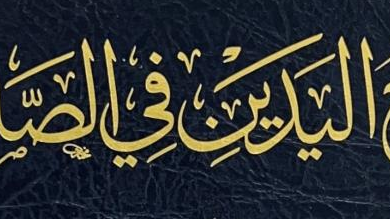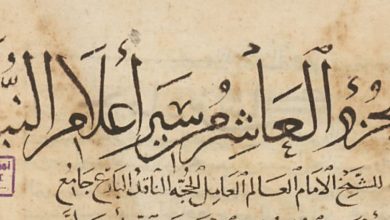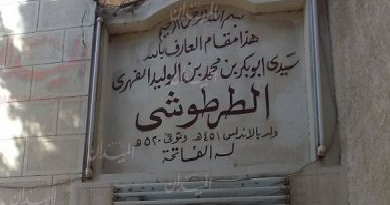Kitāb al-Sunna of ʿAbdullāh ibn Aḥmad: An Analysis of Transmission Reliability and Theological Implications
The Attribution, Methodology, and Content of Kitāb al-Sunna
This comprehensive analysis challenges the contemporary circulation of Kitāb al-Sunna, attributed to ʿAbdullāh ibn Aḥmad ibn Ḥanbal (d. 290 AH), as an authoritative Sunni creedal source, identifying three fundamental deficiencies: dubious attribution, anthropomorphic theology, and polemical distortion.
Authenticity and Transmission
Multiple manuscript recensions exist without scholarly consensus on textual integrity or stemmatic relationships. Critical examination of the Ẓāhiriyya manuscript—a primary witness utilised by modern editors—exposes fatal problems in its transmission chain (isnād) to ʿAbdullāh ibn Aḥmad. The key transmitters include Abū ʿAbdullāh Muḥammad ibn Ibrāhīm al-Harawī who remains unidentified in biographical literature, bearing majhūl status that renders the entire transmission epistemologically compromised according to classical ḥadīth methodology.
The transmission through Abū Ismāʿīl ʿAbdullāh al-Anṣārī (d. 481 AH) further compromises reliability, given his documented imprecision in narrating, controversial theological positions, and affirmation of al-Ḥallāj’s statements. This transmission instability, combined with interpolations and variant readings across manuscripts, undermines attributive claims and places such works within a broader pattern of pseudepigraphical (the false attribution of authorship to a written work) creedal literature.
Comparative Analysis: Parallel Cases of Misattribution
The study contextualises Kitāb al-Sunna within a documented phenomenon of falsely attributed works to major Imāms. Al-Dhahabī identified some spurious texts ascribed to Imam Aḥmad ibn Ḥanbal, including Risāla al-Iṣṭakhrī (transmitted through the unknown al-Iṣṭakhrī) and a Risāla on Salah (prayer).
Similarly problematic is al-Radd ʿalā al-Zanādiqa wa-l-Jahmiyya, attributed to Imam Aḥmad ibn Ḥanbal but transmitted through Khiḍr ibn al-Muthannā, whose reliability Ibn Rajab al-Ḥanbalī (d. 795 AH) questioned. The Risāla to Musaddad ibn Musarhad contains unknown narrators, while Ibn Taymiyya himself mentioned there were fabricated narrations attributed to Aḥmad ibn Ḥanbal. Even Uṣūl al-Sunna, commonly attributed to Aḥmad, suffers from a weak chain of transmission.
Beyond the Ḥanbalī corpus, the study notes al-Fiqh al-Akbar, disputed by a minority but accepted by a large body of scholars in terms of the affirmation of its attribution to Imam Abū Ḥanīfa, and a spurious Sunan falsely ascribed to al-Shāfiʿī containing 200 ḥadīths he never narrated. A work known as Sharḥ al-Sunna attributed to al-Barbahārī (d. 329 AH) likewise faces reliability questions. These parallel cases demonstrate that misattribution was witnessed in manuscript culture, particularly for creedal texts, establishing precedent for scepticism toward Kitāb al-Sunna.
Anthropomorphism and Theological Deviation
The text propagates anthropomorphic (tashbīh) conceptions of divine attributes that transgress orthodox Sunni parameters. Rather than adhering to tanzīh (transcendence) and regulated textual engagement through tafwīḍ (delegation of the meaning) or qualified taʾwīl (acceptable interpretation), the narrations normalise corporeal descriptions historically associated with heterodox sects (like the Karrāmiyya, Mujassima and Mushabbiha).
Particularly egregious is a narration attributed to Khārija ibn Muṣʿab interpreting Allah’s istiwāʾ as physical sitting (julūs)—material that has generated disagreement even among Salafī editors. The work includes weak reports attributing anthropomorphism to the creator that exceed the boundaries established by classical authorities.
This represents doctrinal corruption, compounded by reliance on weak (ḍaʿīf), anomalous (munkar), or baseless (lā aṣla lahu) reports—a methodological violation of the principle articulated by Zayn al-Dīn al-ʿIrāqī and Muḥyī al-Dīn al-Kāfījī that creed cannot be established through weak and unverified narrations.
Polemical Misrepresentation
The work contains sustained defamatory material against Imām Abū Ḥanīfa transmitted through demonstrably weak chains, contradicting stronger, authenticated testimonies to his orthodoxy from Imam Aḥmad ibn Ḥanbal himself, Ibn ʿAbd al-Barr, and contemporaneous authorities. Analysis reveals that transmitters of some anti-Ḥanafī polemics were themselves criticised for unreliability.
Evidence presented includes Imam Abū Ḥanīfa’s sound positions on the uncreated Qurʾān and other creedal matters, Imam Aḥmad’s final positive verdict on him, and his recognized trustworthiness in ḥadīth transmission.
Scholarly Assessments and Contemporary Dissemination
The study documents critical verdicts from prominent scholars across methodological orientations. ʿAbd al-Raḥmān Khalīfa (d. 1945), Muḥammad Zāhid al-Kawtharī (d. 1952), Muḥammad al-ʿArabī al-Tabbānī (d. 1970), Ṣalāḥ al-Dīn al-Idlibī, Ṣuhayb Maḥmūd al-Saqqār, Shuʿayb al-Arnaʾūṭ (d. 2016), Muḥammad ʿĀdil ʿAzīza al-Kiyālī (d. 2022), Muḥammad Aḥmad ʿĀmūh and others all expressed reservations or outright rejection of the work’s reliability.
Even within Salafī scholarship, internal disagreement exists, as evidenced by conflicting positions between ʿĀdil ibn ʿAbdullāh Āl Ḥamdān and other editors regarding specific narrations. Despite this, the English translation of Kitāb al-Sunna by modern Salafīs— is a circulated text without critical apparatus, ḥadīth grading, or manuscript collation, thereby granting unwarranted authority to problematic content. This epistemological negligence perpetuates theological distortions as normative doctrine.
The contents of the downloadable PDF below include the following:
Prologue 6
The term al-Sunna with regard to creedal matters: 10
The Salafīs have published Kitāb al-Sunna in English 11
The Ruling on using weak narrations in ʿAqīda (creed) by Zayn al-Dīn al-ʿIrāqī and Muḥyī al-Dīn al-Kāfījī 14
A 7th century Hanbali scholar on the anthropomorphist sects 16
Al-Khaṭīb al-Baghdādī on Abdullah ibn Ahmad (b. 213 – d. 290 AH) 23
Background to the publishing of Kitāb al-Sunna 26
Examples of Gross Anthropomorphic Narrations or Peculiar Reports in the Kitāb al-Sunna 28
A narration that should not be in Kitab al-Sunna based on a saying of Ahmad ibn Hanbal 28
Attacks on Imām Abū Ḥanīfa in Kitāb al-Sunna 52
An example of textual distortion [taḥrīf] 55
Narrations on Abū Ḥanīfa’s Actual Views on Some ʿAqīda Related Matters 59
A Narration Omitted from Later Manuscripts of Kitāb al-Sunna 61
Inconsistent wording from ʿAbdullāh ibn Aḥmad on a specific narration 63
Imam Abu Hanifa on The Qur’an Being the Uncreated Speech of Allah 65
Salafi Fatwas on Kitāb al-Sunna and the section on Imam Abu Ḥanīfa 69
Abd al-Fattāḥ Abū Ghudda’s (d. 1997) Introduction to Muḥammad ʿAbd al-Rashīd al-Nuʿmānī’s (d. 1999) Work in Defence of Imam Abū Ḥanīfa 78
Imam Abu Hanifa’s High Rank in Hadith: Reply to al-Albani et al: 78
The final verdict of Aḥmad ibn Ḥanbal on Abū Ḥanīfa 81
Ibn ʿAbd al-Barr on Imām Abū Ḥanīfa’s Trustworthiness in Hadith 86
Kitāb al-Sunna edited by Muḥammad Saʿīd al-Qaḥṭānī 88
The known published editions: 92
Al-Qaḥṭānī on the Manuscripts of Kitāb al-Sunna He Utilised 93
The Manuscripts 94
The Zahiriyya manuscript 97
The chain of transmission for this copy 98
The Unknown Narrator(s) in the Chain of Transmission Back to ʿAbdullāh ibn Aḥmad 104
Abū al-Naṣr Muḥammad ibn al-Ḥasan ibn Sulaymān al-Simsār 104
Al-Muʿjam fī Tasmiyat Rijāl of Abu Dharr al-Harawī 105
An article on al-Muʿjam fī Tasmiyat Rijāl of al-Ḥāfiẓ Abī Dharr al-Harawī 108
Textual Analysis of the Reliability Assessment of al-Simsār 111
Abū ‘Abdullāh Muḥammad ibn Ibrāhīm ibn Khālid al-Harawī is also unknown (majhūl) 115
The unknown reliability of the scribes of the two primary manuscripts used by al-Qaḥṭānī 119
Critical Manuscript Analysis of the Kitāb al-Sunna Recensions 122
The Epistemological Implications of Majhūl Status: Evaluating the Isnād Integrity of the Zāhiriyya Manuscript Recension 126
An example of a majhūl (unknown) narrator spreading a fabricated manuscript (nuskha) with 600 Hadiths 135
Critical Evaluation of the Transmission Chain of Kitāb al-Sunna 137
Abū Ismā’īl ‘Abdullāh al-Anṣārī (d. 481 AH) and his controversial background 139
The first article about the creed of Abū Ismāʿīl al-Anṣārī: 140
The second article about the creed of Abū Ismāʿīl al-Anṣārī: 153
A point about Yaḥyā ibn ʿAmmār and Ibn Ḥibbān 158
The third article about the Dhamm al-Kalam of Abū Ismāʿīl al-Anṣārī: 171
The Verdicts of Tāj al-Dīn al-Subkī, his father, and Ibn Ḥajar al-ʿAsqalānī on the Dhamm al-Kalām of Abū Ismāʿīl al-Harawī 178
The imprecision of Abū Ismāʿīl ʿAbdullāh ibn Muḥammad al-Anṣārī (d. 481 AH) in transmitting narrations 182
Assessing Abū Ismā’īl al-Anṣārī’s Reliability in Transmitting Creedal Texts 183
Abū Ismā’īl al-Anṣārī Affirming the Controversial Saying of al-Ḥallāj 185
Al-Qaḥṭānī on those who narrated from Kitāb al-Sunna attributed to ʿAbdullāh ibn Aḥmad 193
Chains of transmission provided by ʿAbdullāh ibn Ṣāliḥ al-Barrāk 201
The Importance of the Topic of Studying Chains of Transmission [Asānīd] 201
Maḥmūd Zakī Yazbak and his reply toʿAbdullāh ibn Ṣāliḥ al-Barrāk 224
An article in critique of the present edition of Kitab al-Sunna 234
Objections Raised Concerning the Current Edition of Kitāb al-Sunna Despite Historical References by some Scholars 244
Historical Context: 244
The Manuscript Problem: 244
Methodological Problems in Attribution 246
The Unknown Transmitter Problem 246
The Partial Evidence Fallacy 247
Historical Context: The 7th Century AH Manuscript Environment 248
The Problem of Textual Inconsistency 248
Burden of Proof 248
Saudi Fatwa on a specific narration with unknown narrators in its chain of transmission 251
The Narration of Books Lacking Transmission Chains (Asānīd) to Their Compilers or Containing Unknown or Unreliable Narrators, and being not well known 254
The importance of chains of transmission (asanid) 254
Shāh Walī Allāh al-Dihlawī (d. 1176 AH) and his classification of the books of Hadith 262
Points mentioned by al-Suyūṭī (d. 911 AH): 273
A Fatwa from Ibn Ḥajar al-Haytamī (d. 974 AH): 278
The verdict of Badr al-Dīn Ibn Jamāʿa (d. 733 AH): 282
The verdict of Muḥyī al-Dīn al-Kāfījī (d. 879 AH) 283
Examples from al-Albānī rejecting al-Fiqh al-Akbar of Imam Abū Ḥanīfa 288
Al-Albānī on al-Fiqh al-Akbar: 288
A Salafi fatwa site rejecting al-Fiqh al-Akbar 290
The Scholars who affirmed al-Fiqh al-Akbar was by Imam Abū Ḥanīfa 293
Names and titles of those who accepted al-Fiqh al-Akbar 299
Other Works Attributed to Imam Aḥmad: Methodological Grounds for Rejection Based on Unknown Narrators and Textual Inconsistencies 303
Kitāb al-Sunna attributed to Imam Ahmad ibn Hanbal 303
Al-Iṣṭakhrī and his unknown status (Majhūl) 304
Al-Dhahabī on books that were falsely attributed to Aḥmad ibn Ḥanbal 306
Risāla al-Iṣṭakhrī and a Risāla on Ṣalāh: 306
Ibn al-Wazīr quoting al-Dhahabi on works falsely attributed to Ahmad ibn Hanbal 311
‘Sunan of al-Shāfiʿī,’ with 200 hundred hadiths that al-Shāfiʿī never narrated: 320
Al-Radd ‘alā al-Zanādiqa wa-l-Jahmiyya attributed to Aḥmad ibn Ḥanbal 335
Ibn Rajab al-Ḥanbalī (d. 795 AH) on al-Khiḍr ibn al-Muthannā 335
Aḥmad al-Najjār and Sinān Āl Jarrāḥ on the False Attribution of “Kitāb al-Radd ʿalā al-Zanādiqa wa-l-Jahmiyya” to Aḥmad ibn Ḥanbal 338
The Treatise [Risāla] of Aḥmad ibn Ḥanbal to Musaddad ibn Musarhad and Another Unknown Narrator 364
Ibn Taymiyya on fabricated narrations about Imam Ahmad ibn Hanbal 368
The story of the shirt of Ibn Hanbal sent to al-Shafi’i and tabarruk (blessings) 368
Ibn Taymiyya on a treatise falsely attributed to Ahmad ibn Hanbal 375
Al-Dhahabī rejecting the attribution of a large Tafsīr to Aḥmad ibn Ḥanbal 377
Usul al-Sunna Attributed to Imām Aḥmad: The weakness of its chain 379
An article by ʿAbd Allāh al-Ghizzī on the problematic nature of Usul al-Sunna: 384
Zubair ʿAlī Zaiʾī (d. 2013) on the Sharḥ al-Sunna ascribed to al-Barbahārī (d. 329 AH) 397
Three more articles on al-Barbahārī 403
An essay on the Reliability of Kitāb al-Sunna of ‘Abd Allāh ibn Ahmad 405
Scholars who referred to Kitab al-Sunna 419
Critical Assessment of Kitāb al-Sunna: A Systematic Review of Scholarly Positions 430
The verdict of ‘Abd al-Raḥmān Khalīfa (d. 1945) 430
The verdict of Muḥammad Zāhid al-Kawtharī (d. 1952) 437
Verdicts from his Maqālāt 437
Muḥammad Yūsuf Banūrī on Ẓāhid al-Kawtharī’s refutation of Kitāb al-Sunna 438
Verdict from his al-Tarḥīb bi-Naqd al-Ta’nīb 462
Verdicts from his Tabdīd al-Ẓalām al-Mukhayyim min Nūniyyat Ibn al-Qayyim 462
The verdict of Muḥammad al-ʿArabī al-Tabbānī (d. 1970) 464
The verdict of Ṣalāḥ al-Dīn al-Idlibī 468
The verdict of Ṣuhayb Maḥmūd al-Saqqār 474
The verdict of Muḥammad ʿĀdil ʿAzīza al-Kiyālī (d. 2022) 479
The verdict of Maḥmūd Saʿīd Mamdūḥ 482
The verdict of Shu‘ayb al-Arna’ut (d. 2016) 491
The verdict of Muḥammad Aḥmad ʿĀmūh 493
ʿĀdil ibn ʿAbdullāh Āl Ḥamdān versus Other Salafī Editors on a Narration from Khārija on Allah’s Istiwāʾ Meaning Sitting [Julūs]! 497
The status of Khārija ibn Muṣ’ab 510
A note on the work by al-Dashti 521
Epilogue 524
Manuscript Transmission and Chronological Gaps 524
Theological Content and Narrative Reliability 524
Sectarian Polemics and Historical Anachronism 525
Broader Patterns of Misattribution 526
Textual Integrity and Editorial Intervention 526
Contemporary Reception and Scholarly Responsibility 526
Methodological Conclusions 527
Scholarly Imperatives 527
———————————————-
Download the file by clicking – HERE





